
After discussing his design and Lyra's manufacturing processes for about 18 minutes, Carr opens the floor to questions. Someone asks which of the many cartridge setup parameters he feels is the most important. I was floored when the first thing Carr said was that "horizontal tracking error is not very important at all." What? I couldn't believe I was hearing this from the guy who writes owner's manuals with super-specific specifications, like tracking force measured to a 100th of a gram and loading recommendations with wide but oddly specific ranges like 97.6 to 806 ohms. Did he really believe that the tonearm geometry calculations of Löfgren, Stevenson, et al, weren't such a big deal?
For decades I have painstakingly used the best tools available to perfect these settings with every cartridge I install; now a guy whose opinion I respect deeply is saying it's not very important.
Carr went on to explain how pretty much every tonearm aligns the cartridge with an overhang and offset angle to minimize the tracking angle error, but that this also results in an undesirable skating force, which needs to be counteracted with some kind of antiskating device on the tonearm. His belief is that the counteracting skating and antiskating forces rob the cartridge of some of its energy and dynamics, resulting in sound that's less lively and engaging than it could be. Carr then spoke about how some audiophiles, especially in Japan, embrace the use of what's known as a pure straight tonearm, with no offset angle, thereby minimizing the skating force and the associated need to use antiskating. But this approach comes with a price.
This story is from the October 2024 edition of Stereophile.
Start your 7-day Magzter GOLD free trial to access thousands of curated premium stories, and 9,000+ magazines and newspapers.
Already a subscriber ? Sign In
This story is from the October 2024 edition of Stereophile.
Start your 7-day Magzter GOLD free trial to access thousands of curated premium stories, and 9,000+ magazines and newspapers.
Already a subscriber? Sign In

Michael Des Barres and the Art of Aural Obsession
Listening to music inspires us to take action. Upon hearing an I.E.-Instant Earworm-we must then determine the best way we can go about listening to it again (and again) at our convenience.

PLANET OF SOUND
BLACK FRANCIS ON HARNESSING THAT MAGIC PIXIES DUST

T+A R 2500 R STREAMING RECEIVER PHONO MODULE
In my review of the T+A R 2500 R receiver (August 2024 issue), I covered many of its features and took as deep a dive as time and column inches allowed.
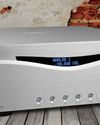
Audia Flight FLS10
The dogma of separates has long reigned supreme among audiophiles: If you're serious about sound quality, you're supposed to need a dedicated preamp and power amp.

Totem Acoustic Element Fire V2
Totem Acoustic was founded in 1987, in Montreal, Canada, by a former high school math teacher named Vince Bruzzese. The company's first product, the Model 1 loudspeaker,' impressed me so much I bought a pair.
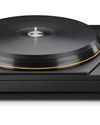
MoFi Electronics MasterDeck
Get two mouthy jazz drummers in a room and watch the sparks fly. Talented turntable designer Allen Perkins, the brain behind Spiral Groove,2 Immedia's RPM turntables,³ and various SOTA models, is first and foremost a jazz drummer.
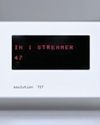
Soulution 727
AImost 14 years have passed since a review of a Soulution product appeared in the pages of Stereophile.\"
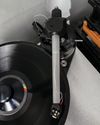
The Spin Doctor checks out the Kuzma Safir 9, a superarm from Slovenia.
The British audio scene from the late 1970s through the mid-1980s was pretty strange. Audio as a hobby was a big deal, with widespread appeal to a much younger crowd than today. Audiophiles were guided by a flurry of what my friends called \"hi-fi pornos,\" audio magazines that filled the racks at the newsagents.

Alex goes to Japan
Arriving in Japan from the United States is like being turned upside down. This condition lasts for much of the first week. When I visited in November, the time difference between Tokyo and New York was 14 hours. \"The floating world\" is a term for the pleasure-addled urban culture of Edo-period Japan, but it's also an apt description for the twilit and not-entirely-unpleasant weirdness of first arriving in Tokyo. Everything seems slightly unreal.
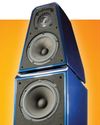
Wilson Audio Specialties The WATT/Puppy
Since the original WATT/Puppy concept kicked off in the late 1980s,' there has been a 40-year evolution leading to the latest version reviewed here.